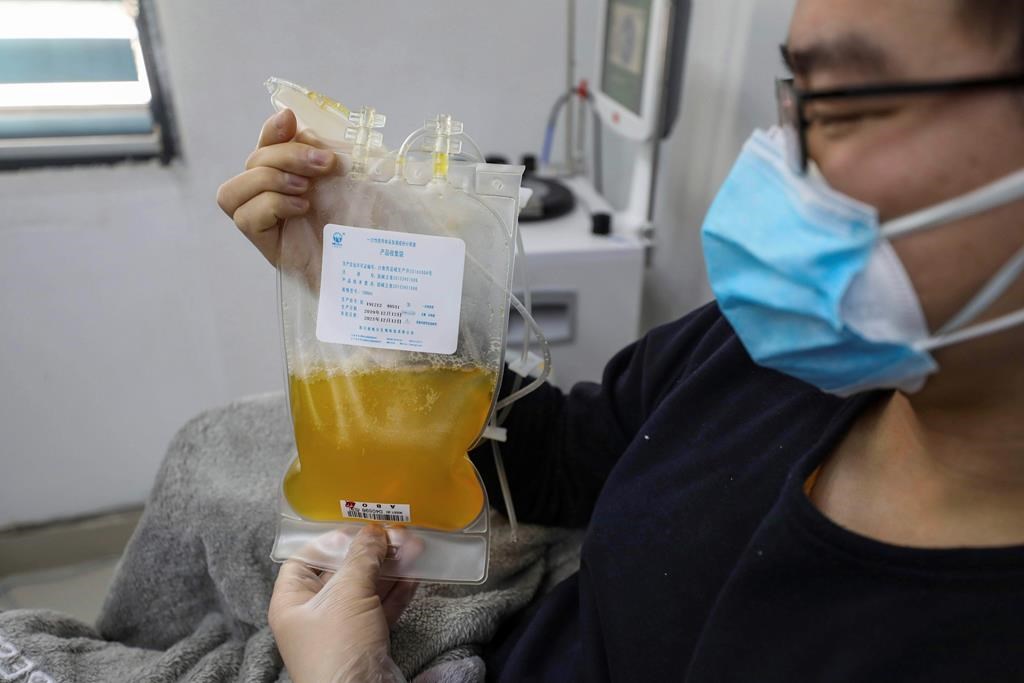A new multi-centre study, led by Canadian researchers, will look at whether blood plasma from people who have recovered from COVID-19 can help current patients fight off the illness.

Among the centres involved is Lawson Health Research Institute in London, Ont. In a release, researchers explain that when a person is infected with a virus, the immune system produces protein antibodies specific to that virus to “help the body fight the infection.” The antibodies stick around after a person has recovered to provide “a degree of long-term immunity.”
Researchers are hoping that “convalescent plasma” — plasma from a person who’s recovered from an illness — can help fight serious infection in people who are currently fighting the virus.
“This is an experiment; we don’t yet know if this treatment will show benefit, but it does show promise as similar treatments have had some success in studies of other viral infections such as SARS,” said Dr. Ziad Solh, associate scientist at Lawson and hematologist and transfusion medicine specialist at London Health Sciences Centre.
Among the outcomes researchers will look at are any changes to the “rate of intubation and mortality rate after 30 days of enrollment in the trial.”

Get weekly health news
The study is seeking 1,200 participants from across Canada as well as New York who are under the age of 67, have fully recovered from COVID-19, and have been symptom-free for at least 28 days.
Researchers say patients looking to participate in the CONCOR-1 Trial as recipients of the transfusions must be 16 or older, requiring oxygen, sick for fewer than 12 days, and have plasma that is compatible with donor plasma.
Canadian Blood Services is coordinating donations and more information can be found on its website.

Questions about COVID-19? Here are some things you need to know:
Symptoms can include fever, cough and difficulty breathing — very similar to a cold or flu. Some people can develop a more severe illness. People most at risk of this include older adults and people with severe chronic medical conditions like heart, lung or kidney disease. If you develop symptoms, contact public health authorities.
To prevent the virus from spreading, experts recommend frequent handwashing and coughing into your sleeve. They also recommend minimizing contact with others, staying home as much as possible and maintaining a distance of two metres from other people if you go out.
In situations where you can’t keep a safe distance from others, public health officials recommend the use of a non-medical face mask or covering to prevent spreading the respiratory droplets that can carry the virus. In some provinces and municipalities across the country, masks or face coverings are now mandatory in indoor public spaces.
For full COVID-19 coverage from Global News, click here.









Comments
Want to discuss? Please read our Commenting Policy first.